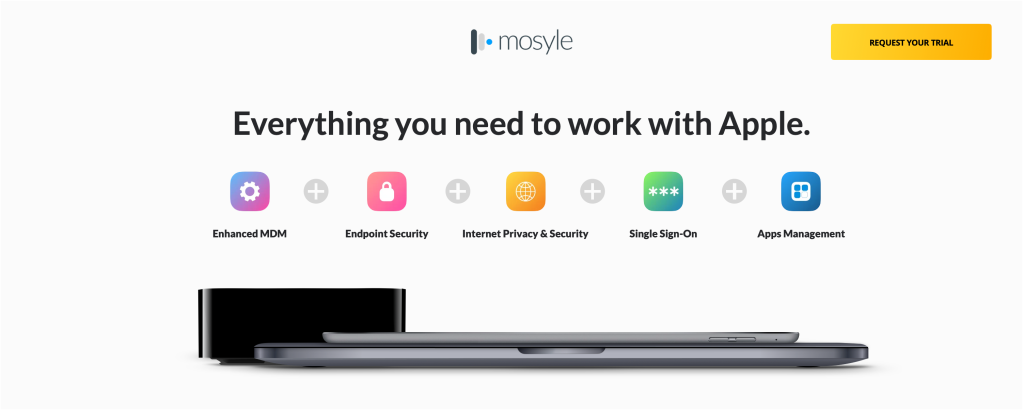Apple @ Work is exclusively brought to you by Mosyle, the only Apple Unified Platform. Mosyle is the only solution that integrates in a single professional-grade platform all the solutions necessary to seamlessly and automatically deploy, manage & protect Apple devices at work. Over 45,000 organizations trust Mosyle to make millions of Apple devices work-ready with no effort and at an affordable cost. Request your EXTENDED TRIAL today and understand why Mosyle is everything you need to work with Apple.
One of the news stories that has dominated the 2024 news cycle is Apple, the EU, and third-party app stores. We recently published a hands-on with Setapp Mobile, and it’s a trend that I see moving to the rest of the world in the coming years. How will businesses respond?
About Apple @ Work: Bradley Chambers managed an enterprise IT network from 2009 to 2021. Through his experience deploying and managing firewalls, switches, a mobile device management system, enterprise grade Wi-Fi, 1000s of Macs, and 1000s of iPads, Bradley will highlight ways in which Apple IT managers deploy Apple devices, build networks to support them, train users, stories from the trenches of IT management, and ways Apple could improve its products for IT departments.

Why the App Store model makes sense for business customers
For businesses using iPhones and iPads, the App Store has been incredible. Many app developers complain about in-app purchases and the update model not being applicable to businesses. Most businesses are buying their app licenses as a SaaS model. The volume purchase program has never supported in-app purchases, so it’s not been a consideration either. If a business is going to purchase an app license, they’re going to contact the developer directly, pay directly, and then tie it to their identity provider or manually create logins.
Even if in-app purchases came to the volume purchase program, it would be a logistical nightmare for deployment and management. It’s not scalable for enterprise deployments, and it’s not how businesses buy software.
From a security perspective, it’s another layer of security for organizations deploying apps. They can load iOS apps in self-service that are vetted by the organization, but outside of that, the App Store is a trustworthy experience for businesses. Yes, rogue apps occasionally make it through App Review, but for the most part, I trust the App Store as a place to find apps.
It’s also a seamless deployment experience as everything with volume licensing and app assignment to devices is tied in with your device management vendor and Apple Business Manager.
Security concerns about third-party app stores
My big concern with third-party app stores is that businesses have yet another attack vector for rogue apps on a device. App Review isn’t perfect, but we know that Apple is focused on making the App Store the safest place to get apps as it helps them sell devices.
If I were an Apple IT manager, I would look at third-party app stores and see a lot of risk and little return on investment. Would app updates come faster? Possibly, but at what risk? Who’s reviewed the code? Will it crash a device with a bad update? Why do I need a third-party app store? How will I deploy it to all my devices? These are just a few of the questions I’ve come across so far. Apple hasn’t detailed how businesses might interact with third-party app stores on managed iPads and iPhones, but I suspect we will end up with a path forward on deployment. I also suspect there will be policy options to disable them as well so employees cannot side load their own apps, etc.
Wrap up
To sum up my thoughts here, third-party app stores are an interesting model for consumers, and I don’t have the option to have choice on how to pay for apps, but for business customers, until something changes, Apple’s App Store is the safest way to deploy apps for iPhone and iPad. Even if Apple builds out a mechanism for managed/supervised devices to use third-party app stores, I see little reason for businesses to consider it.
Apple @ Work is exclusively brought to you by Mosyle, the only Apple Unified Platform. Mosyle is the only solution that integrates in a single professional-grade platform all the solutions necessary to seamlessly and automatically deploy, manage & protect Apple devices at work. Over 45,000 organizations trust Mosyle to make millions of Apple devices work-ready with no effort and at an affordable cost. Request your EXTENDED TRIAL today and understand why Mosyle is everything you need to work with Apple.
FTC: We use income earning auto affiliate links. More.



![[CITYPNG.COM]White Google Play PlayStore Logo – 1500×1500](https://startupnews.fyi/wp-content/uploads/2025/08/CITYPNG.COMWhite-Google-Play-PlayStore-Logo-1500x1500-1-630x630.png)